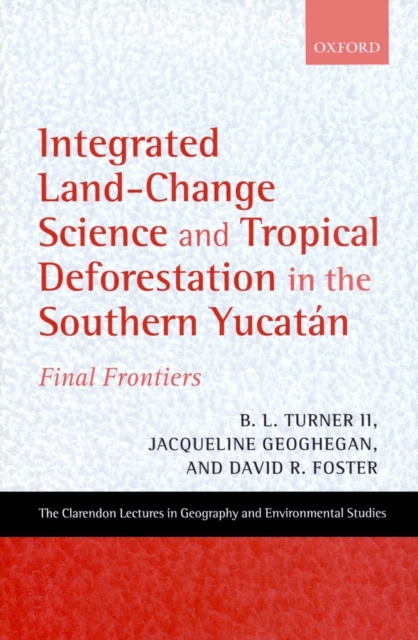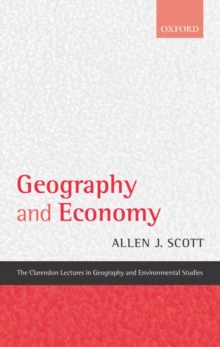
Integrated Land-Change Science and Tropical Deforestation in the Southern Yucatan : Final Frontiers PDF
Edited by B. L. Turner II, Jacqueline Geoghegan, David R. Foster
Part of the Clarendon Lectures in Geography and Environmental Studies series
Description
This highly topical study of tropical deforestation in Mexico reports on the first phase of the Land-Cover and Land-Use Change in the Southern Yucatan Peninsular Region Project (LCLUC-SYPR): a large, multi-institutional, and team-based study designed to understand and project land changes in a development frontier that pits the rapidly growing needs of smallholder farmers to cut down forests for cultivation against federally sponsored initiatives committed to variousinternational programmes of forest preservation and complementary economic programmes. The SYPR project is a response to inderdisciplinary defined research themes deemed critical to global environmental change and complementary international research agendas (e.g. environment and development, ecosystem assessment, biotic diversity). Pivotal among these agendas are those posed by the Land-Use/Cover Change (LUCC) effort of the International Geosphere-Biosphere Programme and the International Human Dimensions of Global Environmental Change Programme as it is linked through such USsponsors as the National Aeronautics and Space Administration (NASA) and the National Science Foundation (NSF). The themes (i.e. questions and subjects) posed by these programmes and organization are 'integrated' or 'synthesis' in kind, meaning that they rest within the intersection of formaldisciplines and are intended to fit into a larger, systems framework about human-environment relationships and the structure and function of the biosphere. The editors of this volume, as most of its contributors, come from the disciplines of geography, ecology, and economics. The lead editor, the geographer B. L. Turner II, has spent most of his career in pursuit of understanding different aspects of tropical deforestation and agriculture.
Information
-
Download - Immediately Available
- Format:PDF
- Publisher:OUP Oxford
- Publication Date:19/02/2004
- Category:
- ISBN:9780191514289
Information
-
Download - Immediately Available
- Format:PDF
- Publisher:OUP Oxford
- Publication Date:19/02/2004
- Category:
- ISBN:9780191514289










